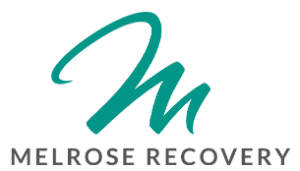Methamphetamine Drug Rehab Beverly Hills
Methamphetamine Drug Rehab Beverly Hills
Methamphetamine Drug Rehab Beverly Hills – Welcome to Melrose Recovery, your pathway to transformation and healing. Located in the vibrant heart of Los Angeles, a few minutes from Beverly Hills and the picturesque beaches of Santa Monica and Venice, we are dedicated to changing lives. Since 2015, our comprehensive Methamphetamine drug abuse treatment approach encompasses detoxification, residential care, and aftercare services, all tailored to meet each couples or individual’s unique needs on their recovery journey.
Led by a compassionate team of addiction professionals and counselors, we offer a range of therapy programs designed to support and guide couples suffering Crystal Meth addiction toward lasting sobriety. At Melrose Recovery, we believe in the power of personalized care and diverse treatment options to pave the way for a brighter future.
Methamphetamine Drug Rehab Beverly Hills

How Long Do Methamphetamines Stay In Your System
A common and important question during recovery is: How long does meth remain in the body? Understanding this can play a key role in both treatment and the overall recovery process.
In general, methamphetamine can be detected in the body within 8 to 24 hours after use. However, detection times vary depending on the type of drug test:
-
Urine tests can typically detect meth up to 72 hours after the last use.
-
Hair follicle tests may show traces of meth for up to 90 days after the last exposure.
These timelines can vary depending on factors such as metabolism, frequency of use, and overall health.
Why You Need an Opiate Detox Program – Methamphetamine Drug Rehab Beverly Hills
Opiates produce intense withdrawal symptoms only hours after your last dose. You know this. When you run out of drugs, you feel these symptoms coming on as “dope sickness.” If you do not use more opiates, you continue feeling these symptoms for a week or more.
Going through cold turkey withdrawal like this feels terrible. But it does not usually threaten your life. That is unless you use more of your drugs after withdrawal has begun. Using too much, even at your regular dose amount, causes a deadly overdose.
Other ways cold turkey harms you includes causing your symptoms of mental illness to flare. Aggression, anxiety, depression, and other mental problems make withdrawal difficult. However, with the help of medications, support, therapies, and other services of medical detox, you get through withdrawal much more easily.
Withdrawal symptoms made easier during medical detox include:
- Muscle cramping, runny nose, and yawning
- Nausea, diarrhea, and vomiting
- Sweating and fever
- Depression, anxiety, and agitation
- Racing heart and high blood pressure
- Drug cravings
After medical detox, you need opiate rehab. Opiate addiction treatment in a licensed rehab program provides the therapies and services you need for lasting recovery. After all, detox just provides the beginning of sobriety. To stay sober, you need to learn how to keep relapse away.
Taking the First Step Toward Addiction Recovery – Methamphetamine Drug Rehab Beverly Hills
Your Transformation Starts Here
Get Started on Your Personal Journey to Addiction Recovery. Contact the Addiction Treatment Specialist at Melrose Recovery to Start the Admission Rehab Paperwork and Process.
What Is an Opiate Addiction Treatment Program? – Methamphetamine Drug Rehab Beverly Hills
Opiate addiction treatment begins with medical detox. But detox only ends your physical dependence on opiates. You need opiate addiction treatment through a quality rehab, for lasting freedom from opiate abuse.
In opiate addiction treatment you learn why you turned to substance abuse in the first place. Maybe you suffer mental illness and were self-medicating those problems. Maybe you suffered abuse or trauma and turned to opiates for relief. Or maybe real pain and a doctor’s prescription quickly took you down a dark road you never expected.
No matter why you started abusing drugs or alcohol, you need help to quit. Detox cleanses your body of the drugs, but it does not clear your mind of them. You do not have the coping skills you need to prevent relapse. You also do not know your own triggers or temptations well so that you can rise above them.
In opiate rehab, you learn why you started abusing opiates. You get to know these root causes, whether they include problems of your past or untreated mental illness. In individual counseling, you also learn what triggers you to use, as well as how to cope with those triggers in the future.
Besides learning how to avoid going back to drugs, opiate addiction treatment teaches you new ways of thinking, behaving, seeing yourself and understanding others. In group therapy, you learn how to build healthy relationships, accept criticism, support others, and socialize in healthy ways.
Finally, opiate rehab helps your whole family heal from the addiction. Family therapy works on past and present problems. Everyone learns to end enabling and codependency. You also learn to communicate better for a stronger family unit.
Los Angeles Opiate Rehab Center
Frequently Asked Questions About Methamphetamines
What is methamphetamine?
Answer: Methamphetamine is a powerful, highly addictive stimulant that affects the central nervous system, often referred to as meth, crystal, or ice.
How is methamphetamine used?
Answer: It can be smoked, snorted, injected, or taken orally. Smoking or injecting produces a rapid, intense high.
Is methamphetamine legal?
Answer: Methamphetamine is available legally in rare cases for medical treatment of ADHD and obesity under the brand name Desoxyn, but illicit use is widespread.
What causes meth addiction?
Answer: Repeated meth use changes brain chemistry, leading to intense cravings and a compulsion to use despite harmful consequences.
How addictive is meth?
Answer: Extremely addictive — even limited use can lead to dependence due to its powerful effect on dopamine levels in the brain.
How quickly can someone become addicted?
Answer: Addiction can develop quickly, sometimes after just a few uses due to the intense euphoria and changes in brain function.
What are the short-term effects of meth use?
Answer: Increased energy, euphoria, reduced appetite, increased heart rate, and hyperactivity.
What are the long-term effects of meth addiction?
Answer: Severe dental problems (“meth mouth”), weight loss, skin sores, anxiety, paranoia, hallucinations, and cognitive decline.
How does meth affect the brain?
Answer: It damages dopamine and serotonin receptors, impairing mood regulation, memory, and decision-making.
What is “meth psychosis”?
Answer: A mental condition from prolonged use, causing paranoia, hallucinations, and delusional thinking.
What are common signs of meth addiction?
Answer: Obsessive behavior, paranoia, extreme weight loss, insomnia, mood swings, and skin picking.
How can you tell if someone is using meth?
Answer: Look for hyperactivity, dilated pupils, dental decay, erratic behavior, and long periods without sleep.
Can meth use be fatal?
Answer: Yes. Overdose can lead to stroke, heart attack, or organ failure.
Does meth use increase the risk of infectious diseases?
Answer: Yes, especially when injected; sharing needles increases the risk of HIV and hepatitis.
Can meth use lead to violent behavior? – Methamphetamine Drug Rehab Beverly Hills
Answer: Yes. It can cause aggression, irritability, and impaired judgment, leading to violent outbursts.
What are meth withdrawal symptoms? – Methamphetamine Drug Rehab Beverly Hills
Answer: Fatigue, depression, anxiety, cravings, increased appetite, and disturbed sleep.
Is meth withdrawal life-threatening? – Methamphetamine Drug Rehab Beverly Hills
Answer: Typically not physically life-threatening, but psychological symptoms can be severe and require medical supervision.
How long does meth withdrawal last? – Methamphetamine Drug Rehab Beverly Hills
Answer: Acute symptoms peak within 7–10 days but cravings and depression can last for months.
What are the main treatments for meth addiction? – Methamphetamine Drug Rehab Beverly Hills
Answer: Behavioral therapies like Cognitive Behavioral Therapy (CBT), contingency management, and support groups.
Are there medications to treat meth addiction? – Methamphetamine Drug Rehab Beverly Hills
Answer: No FDA-approved medications specifically for meth addiction, but some drugs are being studied and used off-label.
Is inpatient rehab necessary for meth addiction? – Methamphetamine Drug Rehab Beverly Hills
Answer: It can be very beneficial, especially for those with severe addiction or co-occurring mental health disorders.
Can someone recover from meth addiction? – Methamphetamine Drug Rehab Beverly Hills
Answer: Yes, with the right treatment and support, many people recover and live healthy, drug-free lives.
How can families help someone addicted to meth? – Methamphetamine Drug Rehab Beverly Hills
Answer: Encourage treatment, offer emotional support, set boundaries, and avoid enabling behavior.
Are support groups effective? – Methamphetamine Drug Rehab Beverly Hills
Answer: Yes, groups like Crystal Meth Anonymous (CMA) provide peer support and structure for recovery.
How can meth addiction be prevented? – Methamphetamine Drug Rehab Beverly Hills
Answer: Education, early intervention, mental health support, and addressing social risk factors can reduce the likelihood of addiction.
Frequently Asked Questions About Crystal Meth
What is crystal meth?
Answer: Crystal meth is a highly potent, smokable form of methamphetamine that resembles clear or bluish-white crystals. It’s known for producing intense, fast-acting euphoria.
How is crystal meth different from regular methamphetamine?
Answer: Crystal meth is a purer, more potent form of methamphetamine, usually smoked for a stronger and quicker high compared to other forms that may be snorted or swallowed.
What are the street names for crystal meth?
Answer: Common street names include ice, glass, Tina, shards, and crank.
How does crystal meth affect the brain?
Answer: It floods the brain with dopamine, a chemical responsible for pleasure and reward, leading to intense euphoria and, over time, brain damage and emotional instability.
What are the immediate effects of using crystal meth?
Answer: Increased energy, decreased appetite, rapid heart rate, hyperactivity, and heightened alertness. These effects can last several hours.
What are the dangers of using crystal meth?
Answer: Risks include heart attack, stroke, addiction, severe dental decay (“meth mouth”), hallucinations, paranoia, and violent behavior.
Can crystal meth be addictive after one use?
Answer: While not everyone becomes addicted after one use, the intense high can lead to repeated use and a rapid path to addiction.
What does long-term use of crystal meth do to the body?
Answer: It can cause severe physical deterioration, including extreme weight loss, skin sores, tooth loss, and organ damage.
What are signs someone is using crystal meth?
Answer: Symptoms include erratic behavior, insomnia, obsessive actions like picking at skin, rapid speech, and sudden weight loss.
Is treatment available for crystal meth addiction?
Answer: Yes, behavioral therapies, counseling, support groups, and structured rehab programs can help individuals recover from crystal meth addiction.
- Art therapy program
- Music therapy program
- Exercise therapy program
- Nutrition education
- Individual therapy program
- Group therapy program
- Experiential therapy program
- Evidence-based therapy
- Dual diagnosis treatment
- 30-day Suboxone tapering
When you want to end your opiate addiction, Melrose Recovery provides the treatment you need. Contact Melrose Recovery at (714) 442-7782 for more information about available programs.
The Road to Recovery Starts at an Alcohol Addiction Treatment Center
Health Insurance PPO Plans for Methamphetamine Drug Rehab Beverly Hills
PPO Plans for Melrose Recovery Methamphetamine Drug Rehab Beverly Hills, California
Finding effective treatment for drug and alcohol addiction is one of the most important steps in the recovery journey. For many individuals and families, navigating how to pay for rehab can be a major concern. Fortunately, Melrose Recovery, a leading addiction treatment center in California, accepts a wide range of PPO (Preferred Provider Organization) health insurance plans, making high-quality care more accessible and affordable.
Why Choose Melrose Recovery?
Melrose Recovery offers a structured and supportive environment for individuals seeking recovery from substance use disorders. Their programs include:
-
Medical Detox
-
Residential Inpatient Treatment
-
Dual Diagnosis Treatment
-
Individual and Group Therapy
-
Aftercare Planning
What sets Melrose apart is their client-centered approach, experienced clinical team, and commitment to long-term recovery. Located in Los Angeles, the facility provides a safe and comfortable setting to begin healing.
What Are PPO Insurance Plans?
PPO insurance plans allow policyholders to see healthcare providers both inside and outside of their insurance network, usually without a referral. When it comes to addiction treatment, this flexibility can be vital.
Key PPO benefits for rehab coverage:
-
Out-of-network options: You can still receive coverage for facilities not directly in your provider’s network.
-
No referral needed: You don’t need a referral from a primary care physician to start treatment.
-
More provider choices: PPO plans give you more freedom to choose the rehab facility that fits your needs.
Does Melrose Recovery Accept My PPO Insurance?
Melrose Recovery works with most major PPO insurance providers, including but not limited to:
- Aetna
- AmeriHealth
- Anthem
- Blue Cross Blue Shield
- Cigna
- Hawaii Medical Service Association (HMSA)
- Humana
- Kaiser Permanente
- Medical Mutual
- Premera Blue Cross
- UnitedHealthcare
Melrose Recovery’s admissions team is available 24 hours a day 714-442-7782 to verify your insurance benefits quickly and confidentially. This process helps determine your coverage, deductible, co-pays, and out-of-pocket maximums before starting treatment.
Verifying Insurance Coverage
To find out if your PPO insurance plan covers treatment at Melrose Recovery:
-
Call Melrose Recovery directly – Speak with an admissions specialist who can walk you through the insurance verification process.
-
Submit insurance info online – Many treatment centers, including Melrose, offer a secure online form for quick verification.
-
Check with your insurer – You can also contact your insurance company directly and ask about your behavioral health benefits.
The Importance of Getting Help
Addiction is a chronic and progressive condition—but with the right support, recovery is absolutely possible. By accepting a variety of PPO plans, Melrose Recovery helps reduce financial barriers to care, so individuals and families can focus on healing rather than costs.
Take the First Step Today
If you or a loved one is struggling with addiction, don’t wait. Melrose Recovery in Los Angeles offers compassionate, evidence-based care in a supportive setting. With PPO insurance coverage, treatment may be more affordable than you think.
Contact Melrose Recovery today to learn more about admissions and insurance verification. Your path to recovery can start now.





Get In Touch
info@melroserecovery.com
501 North Mariposa Ave, Los Angeles, CA 90004



